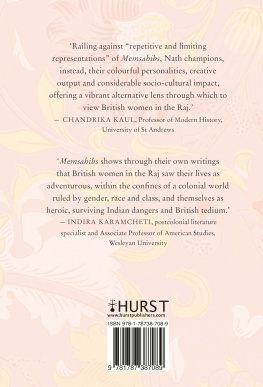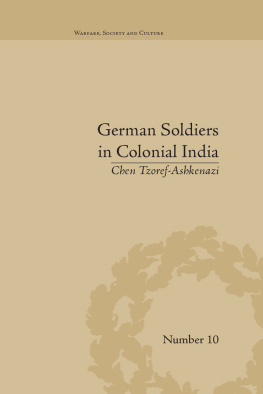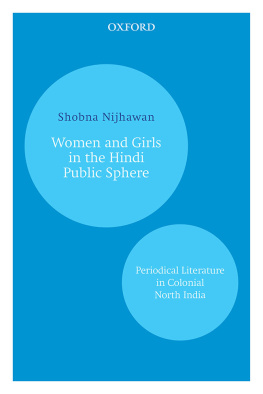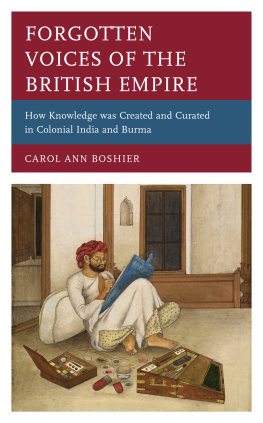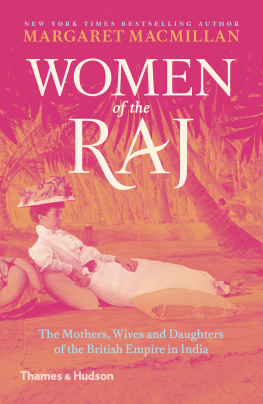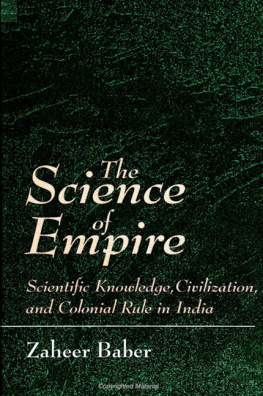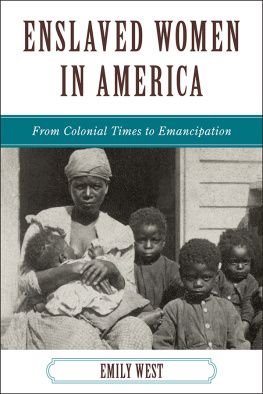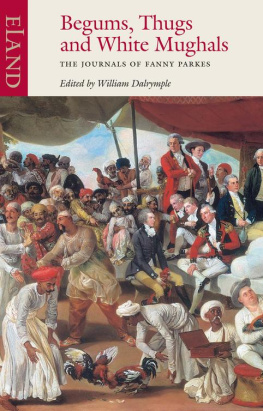Table of Contents

MEMSAHIBS
IPSHITA NATH
Memsahibs
British Women in Colonial India

HURST & COMPANY, LONDON
First published in the United Kingdom in 2022 by
C. Hurst & Co. (Publishers) Ltd.,
New Wing, Somerset House, Strand, London, WC2R 1LA
Ipshita Nath, 2022
Printed in the United Kingdom
Distributed in the United States, Canada and Latin America by Oxford University Press, 198 Madison Avenue, New York, NY 10016, United States of America.
All rights reserved.
The right of Ipshita Nath to be identified as the author of this publication is asserted by her in accordance with the Copyright, Designs and Patents Act, 1988.
A Cataloguing-in-Publication data record for this book is available from the British Library.
This book is printed using paper from registered sustainable and managed sources.
ISBN: 9781787387089
www.hurstpublishers.com
To Ma, Babu and Shelly
CONTENTS
NOTE ON THE COVER IMAGE
The cover of this book shows Lady Alice Reading, who came to India to accompany her husband, Lord Isaacs, who served as the Governor-General between 1921 and 1926. She became known for her support of various charitable initiatives and especially for her ardent advocacy for maternity and child welfare in India. She was appointed the Dame Grand Cross of the Order of the British Empire and the Companion of the Order of the Crown of India, as the Viceregal Consort in 1921. She was awarded the Kaiser-e-Hind Medal in gold in 1924, which was one of the highest awards granted by the Emperor/Empress for public service in India.
Iris Butler, who was Alice Readings biographer, has pointed out that Lady Reading had no prior understanding of India when she came, and despite her avid philanthropic work, remained somewhat distant throughout her tenure as the Vicereine. This could be owing to her rather isolating high social stature as well as the numerous social obligations she had as the wife of a Viceroy. But despite her own peculiar set of perceptions and prejudices, she and her husband were both seen as different from the usual breed of Viceregal couples. One of the best examples of Lady Readings unconventionality is perhaps the parties she hosted where she always gathered mixed crowds, which, at that time, was rather uncommon.
What truly defined Lady Reading, however, was that she unabashedly wore her title, revelling in her position and making the most of her stint in India. Though not overtly interested in politics, she remained passionate about her social work and even campaigned extensively to further her aims in relation to medical aid for women and children in India, establishing a hospital before she left. Perhaps it was this complexity in her personality, and her proclivities, that at once set her apart and also brought her close to the conventional image of the British memsahib in India.
Iris Butler wrote about her in The Viceroys Wife (1969):
Imagine her scribbling away on huge sheets of stiff crested paper, sometimes in the train, sometimes at her table in a briefly-snatched minute before going down to dinner or ball, sometimes in tents, often in bed. Sometimes cold, more often too hot (no-one knows what heat means till they come to India), for there was no air-conditioning in those days. Enthusiastic, sympathetic, eager, amusednever discouraged. I am afraid my letters are so bald, she says. It has taken over forty years to discover how mistaken that judgement proved to be.
ACKNOWLEDGEMENTS
My special thanks are due to Professor Saugata Bhaduri, Professor G. J. V. Prasad, and Professor Anisur Rehman for their valuable advice on my work; Arunava Sinha, translator and friend, for always lending an ear and offering encouragement; my colleagues at work, Professor Kusum Lata, Ms. Kanchan Mohindra, Dr. Seema Mathur, Dr. Mini Gill, Dr. Kalpana Rohit, and Dr. Rajnikant Goswami for their kind consideration and motivation; Professor Douglas E. Haynes at Dartmouth College for his enthusiastic support; and Dr. Jim Clifford and Professor Erika Dyck at the University of Saskatchewan for their relentless help and guidance, as well as confidence in me as I explored my area of study.
Books are written in the mind for years before they are written down, but this one wouldnt have been put to paper without Kanishka Gupta, friend and advisor, who was the first to tell me that I must write these stories about British women in India. My gratitude goes to Michael Dwyer at Hurst for his vision for this book; my wonderful editor, Lara Weisweiller-Wu, for her excellent assessment of and feedback on the manuscriptthis book took shape because of her; Olivia Ralphs, who edited this book; and Rahul Soni at HarperCollins for his timely suggestions.
I convey my deepest gratitude to Professor Nishat Zaidi, my mentor and guide through the years, for always helping me see the bigger picture and for always somehow knowing how something should be written, before it is even fully imagined. Last but not least, I am grateful to my friends and family for their love, patience, and kindness during the time I immersed myself in writing this book, especially through the most brutal waves of the pandemic in 2021.
GLOSSARY OF BRITISH-INDIAN TERMS
Aao | Come |
Acchi baat | Good job/good thought |
Ayah | A ladys maid or wet nurse |
Baba log | Young boys |
Banghies | Items used for carrying luggage |
Bangla | Bungalow |
Barha hazri | Breakfast |
Barha shikar | Big-game hunting |
Bazaar | Marketplace |
Bhang | Indigenous intoxicant |
Bheestie | Water carrier man |
Bibi | Indian lady |
Buckshish | Alms |
Bursat | Rains |
Butteewallah | Lamplighter |
Chillum chee | A native contraption used like a pipe |
Chota bursat | Pre-monsoon rains |
Chota hazri | Meal taken before dawn; snack |
Chota peg | A small peg of drink |
Chowkidar | Guard |
Chunam | Whitewash for walls/chemicals such as lime powder, used to keep away household pests |
Churails | Female spirits or demons dwelling in trees, known to be hideous and preying on men |
Claishees | Tent-pitchers |
Coolies | Bearers |
Dak | Transport by relays of bullock-carriages or postal service |
Dakoo/dacoit | Bandit |
Dal | Cooked lentils |
Dandi | Palanquin |
Darzi | Tailor |
Dawai | Medicine |
Dhai | Midwife |

